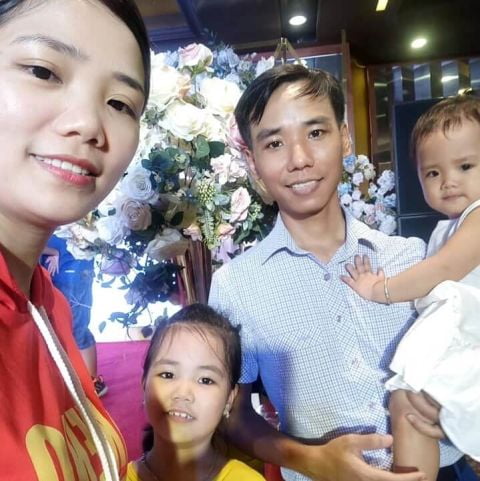Hue, Happiest Unhappy Person?
Hue, Happiest Unhappy Person?
Hue, age thirty and single-mom, has a daughter seven years old and claims not to know “happiness”. Hopefully when you and she meet for the first time she will feel differently.
Hue was born into an extremely poor family in Bac Kan province, a very poor mountainous province in extreme northern Vietnam. Her father, fifty-eight, and her mother, also fifty-eight, are both farmers, tending a few buffaloes and chickens and farming rice and tapioca. Hue is totally blind due to her mothers’ having contracted chicken pox during her pregnancy with Hue. She has two younger sisters and has a younger brother, twenty-three years old, who is totally deaf, though the family doesn’t know the cause of this. She says that their mutual impairments have resulted in a special bond between them.
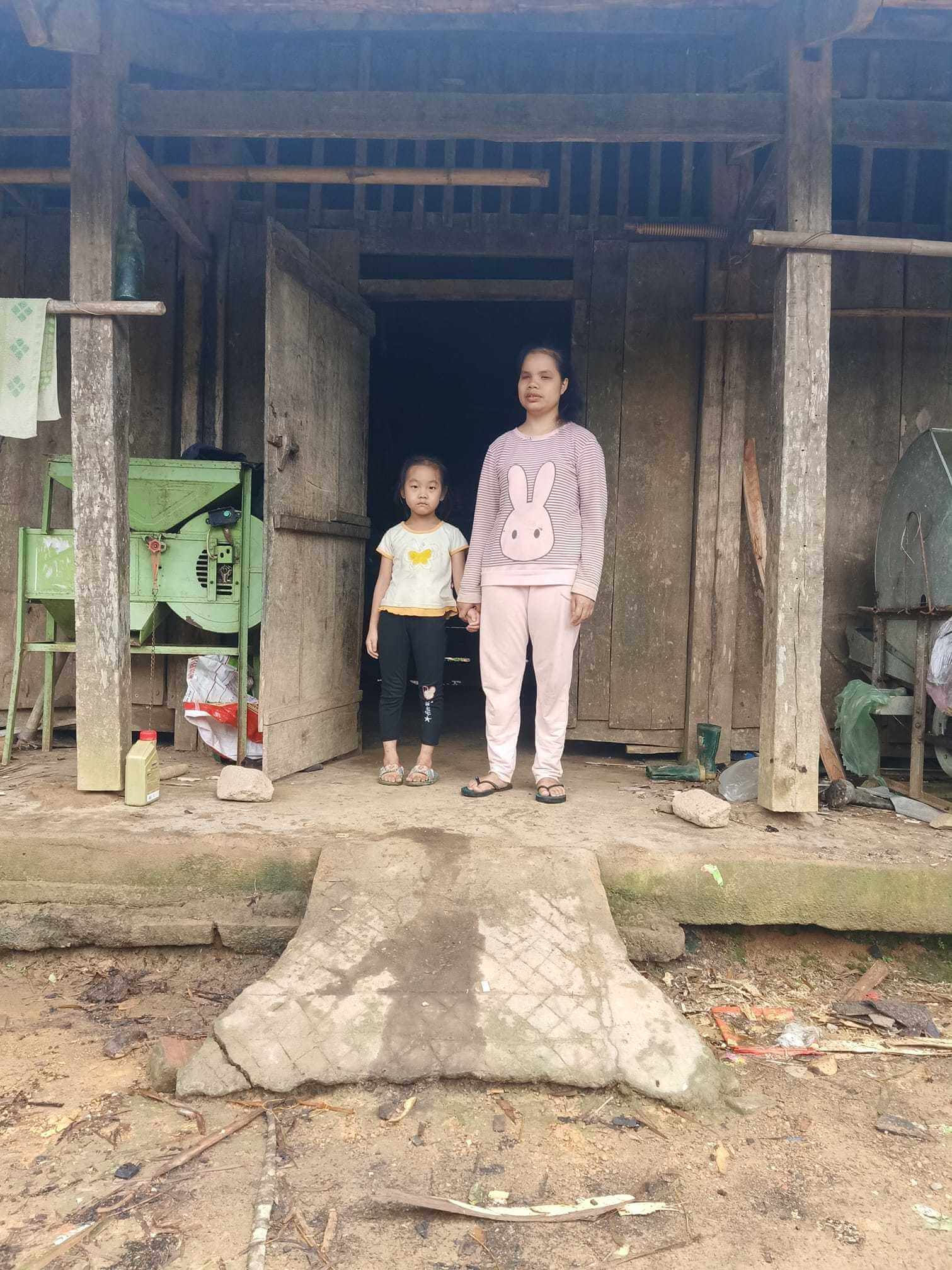
As I had had the pleasure of teaching Hue for a few weeks, several months before conducting this video-chat with her, it came as a total surprise to learn that Hue has never attended any school nor had the benefit of any private instruction whatsoever. Her first formal instruction of any kind has come in the form of the massage training she has received since coming to Omamori, and then more recently, the instruction in English she received from me. As I later learned, she outworked and outperformed several other students with considerably more education in her massage training even as she proved herself similarly capable and hard working in her English lessons with me.
I must interject here that Hue laughs and smiles readily and frequently, and during the time I have spent with her (already a number of hours) seems to maintain a constantly positive attitude and a willingness to try most anything.
Learning that she lived at home with her family until age eighteen, I was naturally curious how she spent her time. I anticipated some interesting stories of playful games with her siblings, or anecdotes regarding attempts to help out on the farm. I wanted to know what she looked forward to every day, what she or others did that made her happy. I really didn’t know quite what to say when she told me, quite simply, for the second time in our conversation that she didn’t know happiness. “I can’t remember looking forward to anything.”
…. I was caught short. Mute... This was one of the few times I’ve truly been at a loss for words. After a short pause she continued her story. She stayed at home almost constantly until age eighteen, assisting with some housework--a little cleaning here, some laundry there, and little else that she remembers or cared to talk about. Hue didn't have one friend as other children only played with sighted kids going to school . When she was eighteen years old a group of traveling handicapped musicians, some deaf, some badly crippled or missing limbs and some blind, visited her village to give a performance. Her sighted siblings told her mother about the group and the possibility that Hue might be able to join them, thereby earning some income to help support herself. This was in 2008.
Though she claims to have little to no interest in music and no particular talent in singing with little else to do, she decided to join the group and go on the road with them. It was to be an eleven year long road trip. As I listened to her tell of a number of incidents during the course of her travels with the group I couldn’t believe the frequency of her smiles and of her laughter, neither of which seemed to be anything other than free and easy. Her laughs seemed neither embarrassed nor intended to conceal anything. Rather, she seemed to be deriving pleasure from simply being able to talk about her experience, painful and difficult as it clearly had been on many occasions.
Hue and her group had no home and no real base of operations, traveling more or less constantly. There was seldom if ever any place for them to sleep, other than if they were lucky, they might be allowed to sleep in the performance venue. However, as their performances were very rudimentary, they were only able to perform in the poorest and remotest villages, earning very little for their work. Often they slept rough, out in the open, with only a few coconut trees, a bamboo grove, or even just the trees in the forest for shelter.
Hue told of the group singing in the rain with water up to their ankles, desperate to earn even a little money or be given something to eat for their efforts. She tells of having the (inedible) fruits of the rubber trees in the forest fall on their heads while sleeping, and of sleeping in a village cultural center with the men sleeping underneath--or practically inside the stage, as if in a cave and the women sleeping on the stage itself. She also tells of sleeping on the floor of the lobby in the reception area of other “halls of culture”. Not once did she speak of actually sleeping in a hostel, guest house, or in the homes of villagers. At this point in her story Hue and I had already been visiting for forty-five minutes. Though her smiles and laughter continued, I once again tried to uncover at least a trickle of any source of happiness. I just knew it had to be coming, but at this point, even when I repeated my query,“your delightful smiles and laughter leave me with the feeling that there must be something that makes you happy. Can you share that with me?” Hue insisted, “I do not know happiness.”
In 2013, a man who was both blind and badly hunchbacked joined the band of musicians. Sometime during the two months he was with the band, the two of them produced a daughter. Though he left the band, after about eighteen months her family arranged a wedding for the two of them. The union lasted twelve days, until he left her and their daughter never to be heard from again. Stranded with a child and with no other means of support she continued traveling with the troup for the next six years, leaving her daughter in her mother’s care. However, as her father had a drinking problem and at times became extremely abusive of her mother, the family decided to try to entrust her to the care of an orphanage. The orphanage refused, however, stating that since both her biological mother and grandparents were still living they could not accept her.
About this time, an NGO (Ha Ga) learned of the plight of the family and approached Omamori Spa/Blind Link to see if there was a possibility that Hue might be accepted for training and possible employment. It was decided that Hue would come to Hanoi and live in Omamori Spa's apartment with other female blind students.
Home, at last. Happiness, at last! I’ll tell you about this in a minute. Once finding a place to call home, namely Omamori and its supportive family of teachers and colleagues, Hue quickly established herself as one of the most hard working of all the students and staff, practicing morning, noon and night the new techniques she was learning, and outdistancing others who had the benefit of more education and more time with Omamori. I asked her how things had changed for her since coming to Omamori. It was at this point, after pouring her heart out while explaining how things had become more convenient and comfortable, and how she now had the confidence and knowledge of how to care for herself for the first time ever, that she also...finally...used the word “happy” to describe something that has happened to her. She said, “The happiest moment in my life was when, after completing my first level of training, I received a call from the receptionist’s desk informing me that I would be giving my first paid massage. All of the staff present gave me a huge round of applause and encouragement.” I could almost feel her heart swelling with pride as she told this story. I, too, wanted to burst with pride and happiness for her.
I asked her what she liked about working at Omamori (if anything) and again finally, she began to talk more of her happiness, describing an encounter with a client who she thought couldn't understand her English. After struggling for several minutes to make him understand she discovered that he was deaf. She says she felt an immediate bond with him and that her connection with him brought back memories of her little brother, reminding her of her special bond with him. She continued to talk about other experiences with her clients and of her happiness at, for the first time ever, being able to earn enough that she could send some money home to help support her daughter and her family.
We ended our conversation on a quiet note as she talked about the confidence she has also gained since acquiring a white cane, and learning how to use it. Before coming to Omamori she had never even heard of such a thing. Now, it is her constant companion. She goes everywhere with it and says it has increased her confidence and desire to go out and do things. No longer does she have to use her feet to try to find obstacles, only discovering too late sometimes the dangers that await her. Though she has heard stories of its use drawing attention to the blind, occasioning discrimination of one sort or another, she says she doesn’t know of any incidences where this has affected her, personally. “If people avoid me, noticing that I use a white cane and therefore am blind, it doesn’t affect me because I can’t see them avoiding me!”
She laughs playfully, reminding me once again of what makes her such a special person. Happy, or unhappy...or just the happiest unhappy person ever? This remains to be seen, but all of us at Omamori can only hope that her life becomes happier and happier, and happier.
News Related
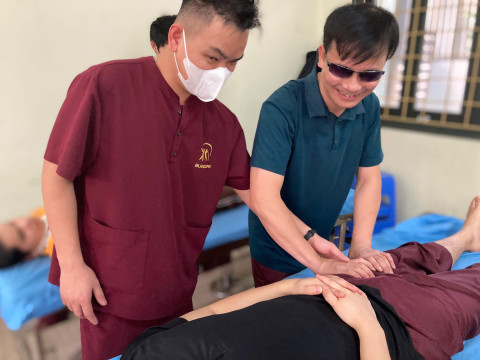
Nguyễn Ngọc Khuyến's Journey to Mastering Traditional Vietnamese Massage
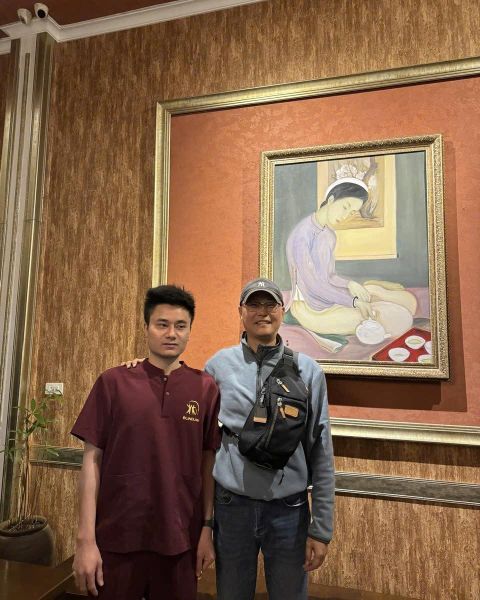
Hiep's story
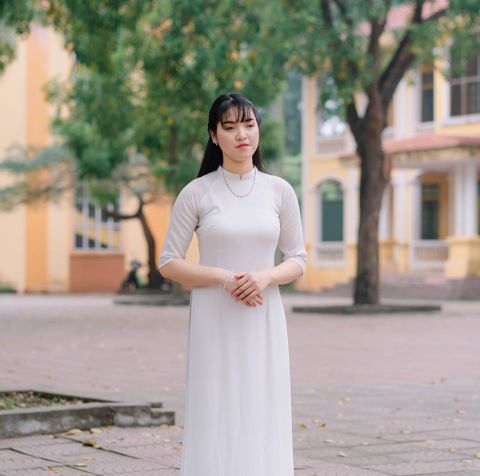
MINH’s STORY
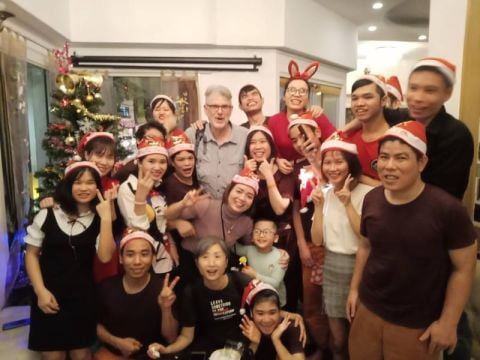
Stories of Our Blind Students: Session 1: Hồ Sỹ Cường
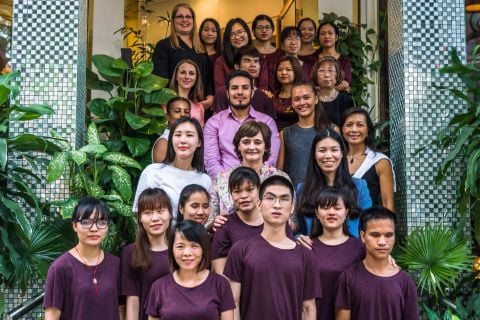
Omamori Spa: Breaking Barriers: A Decade of success for Blind Youth Employment in Vietnam.
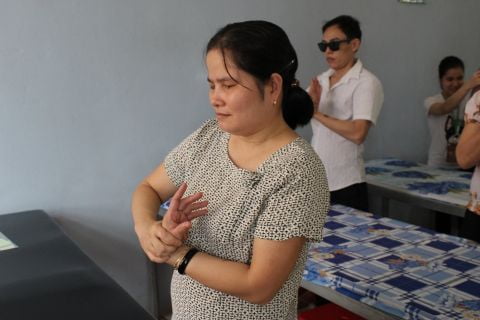
Lê Thị Đào - A talented blind singer
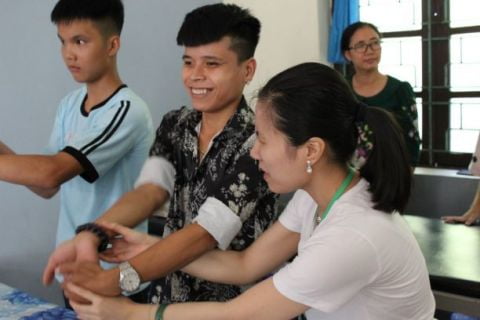
Hung - A Manager in the Future
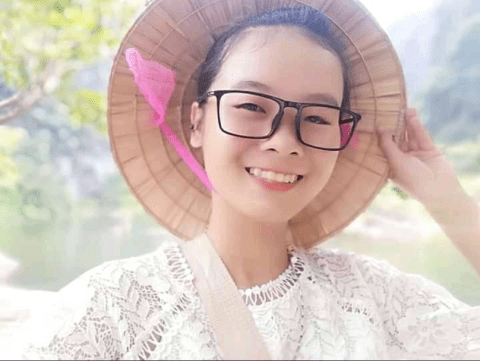
Chi - A Wild Horse Girl
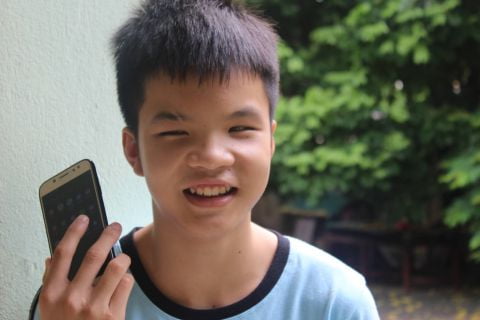
Lâm - The Youngest Student!
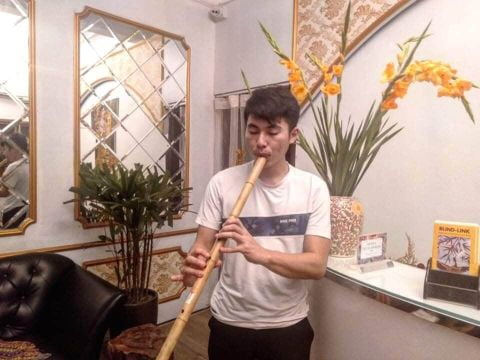
Tien, Musician and Listener
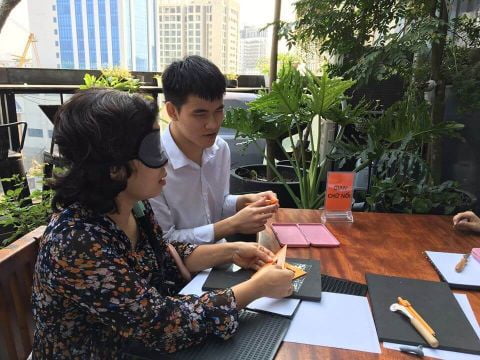
Trung Dao, Inventor & Social Work Visionary
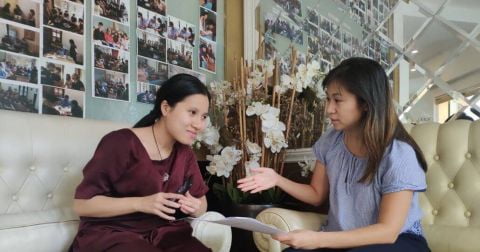
Nguyet, the “Rose”
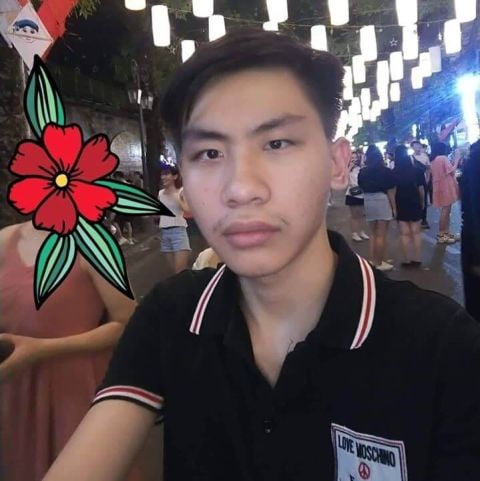
Tu, Therapist and Serious Gamer
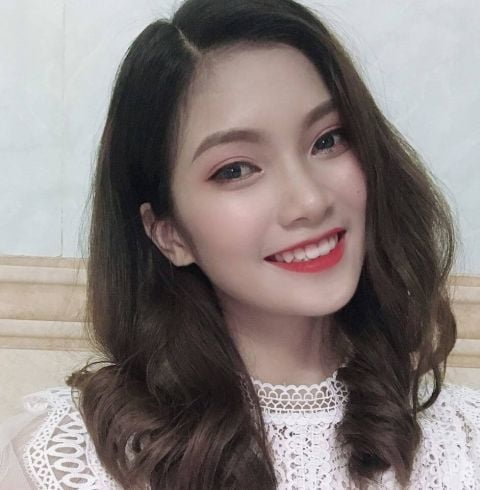
Lam Khanh, Dedicated Physician
